AI can write, design, and code.
But imagine if it could also take action — understanding what needs to be done, planning the steps, and completing the work without constant instructions.
That’s the power of Agentic AI.
It goes beyond simply creating content to actively solving problems and driving results. By 2028, Gartner predicts that one-third of all software will include Agentic AI, automating up to 15% of everyday tasks and transforming how businesses operate.
In this blog, you’ll discover exactly how Agentic AI works, real-world examples of its impact, and why it could be the next big advantage for your business.
What is Agentic AI and How Does it Work?
Agentic AI is a type of artificial intelligence that can take action on its own to achieve a goal, instead of just following a fixed set of instructions. You can think of it as an AI with initiative — it doesn’t just answer questions, it actively works through a process to get things done.
Here’s how it works in simple terms:
- It understands the goal – First, you tell it what you want to achieve. This could be something broad (“improve data quality”) or very specific (“send a weekly summary to the team”).
- It plans the steps – The AI figures out the best way to get there. Instead of waiting for you to tell it each move, it breaks the goal into smaller tasks it can carry out.
- It takes action – It goes ahead and completes those tasks, using the tools, data, or systems it has access to.
- It checks and adjusts – As it works, the AI keeps checking if it’s on the right track. If something changes or a better option appears, it can adjust its plan without needing to be told.
- It reports back – Finally, it can share what it did, what worked well, and what might need attention — so you stay in control without micromanaging it.
In short, Agentic AI is like a reliable teammate who not only understands what you want but can figure out how to get it done and adapt along the way. It’s not about replacing human decisions — it’s about taking care of the steps that don’t need constant human attention, so people can focus on higher-value work.
Why Agentic AI Matters for Businesses Today
Agentic AI is more than just a new tech trend — it’s a practical tool that can help businesses save time, cut costs, and make better decisions. Here’s why it’s becoming essential:
1. Saves Time by Automating Complex Work
Many business processes involve long, repetitive steps that take hours or even days to complete. Agentic AI can handle these tasks from start to finish — from gathering information to taking action — without constant human involvement. This means teams can focus on higher-value work instead of being tied up with routine tasks.
2. Reduces Costs Through Smarter Operations
When processes run faster and with fewer errors, costs naturally go down. Agentic AI can spot inefficiencies, prevent mistakes, and adjust processes on the fly. Whether it’s managing supply chains, keeping IT systems running smoothly, or improving customer service, it helps companies do more with less.
3. Improves Decision-Making with Real-Time Insights
Good decisions depend on having the right information at the right time. Agentic AI can gather data from multiple sources, analyze it instantly, and take action or provide clear recommendations. This helps leaders respond quickly to changes in the market, customer needs, or business conditions.
In short: Agentic AI gives businesses the ability to work faster, operate more efficiently, and make smarter choices — all of which are critical for staying competitive today.
What’s the Difference Between Agentic AI and Autonomous Agents?
The terms “Agentic AI” and “autonomous agents” are often used together, and while they are closely related, they’re not exactly the same. Understanding the difference can help you choose the right approach for your business.
Agentic AI
Agentic AI is a type of artificial intelligence that can understand goals, make decisions, and take action on its own to achieve those goals. It combines awareness, reasoning, planning, and execution in one system. Think of it as the overall intelligence that gives a system the ability to act independently.
Autonomous Agents
An autonomous agent is a specific program or software entity that uses AI (often Agentic AI) to complete a task without constant human input. It’s like a worker within the larger AI framework — designed to carry out one or more tasks based on its instructions and capabilities.
The Key Difference
- Agentic AI is the broader capability — the “mind” that can guide actions toward a goal.
- Autonomous agents are the “doers” — the individual units or programs that perform the actions needed to achieve that goal.
In short: Agentic AI is the decision-maker and strategist, while autonomous agents are the task-performers that bring those decisions to life. Together, they make intelligent, goal-driven automation possible.
Agentic AI vs Generative AI: Key Differences and Examples
While both generative AI and agentic AI are at the forefront of innovation, they pursue entirely different objectives and operate through distinct mechanisms. Generative AI is a creator, while agentic AI is a doer.
Here’s a straightforward comparison of agentic AI vs generative AI:
The key difference lies in ‘agency’: generative AI creates, while agentic AI acts and interacts with its environment with a clear purpose.
What Can Agentic AI Do? 4 Powerful Applications
Agentic AI is more than just a tool — it’s like having a capable helper that can think ahead, make decisions, and take action on its own. Its uses are growing fast, and it’s already changing the way many industries work. Here are four powerful ways it’s making an impact:
1. Smarter Business Operations
Agentic AI can handle long and complicated tasks from start to finish without needing constant instructions. It can manage IT systems, keep track of stock, and even coordinate supply deliveries. What makes it special is its ability to adapt if something changes, making quick, smart decisions to keep everything running smoothly.
2. Better Customer Service
Imagine contacting a company about a delayed order and having the system instantly understand the problem. Without you having to explain much, it could check the delivery status, issue a refund, or arrange a replacement automatically. Agentic AI can make customer service faster, smoother, and more personal.
3. Self-Managing Data
Looking after large amounts of data can be a huge job — but Agentic AI can do it continuously and accurately. It can spot mistakes, fix them instantly, and make sure information moves in the most efficient way possible. For companies that rely on a lot of data, this means fewer errors, lower costs, and better decisions.
4. Improving Healthcare
In healthcare, Agentic AI can help prevent problems before they become serious. For example, an elderly patient with a heart condition might wear a smart device connected to an AI system. If it notices signs of trouble, it could book a doctor’s appointment, send medication reminders, or alert family members — all without delay.
These examples show that Agentic AI is not just about doing tasks — it’s about understanding situations, taking the right action, and helping people and organizations work more effectively.
How Agentic AI Differs from Traditional AI, Generative AI, and Machine Learning
To truly understand the value of Agentic AI, it helps to see how it’s different from other kinds of AI. Many AI systems are good at analyzing information or creating content. But Agentic AI adds something extra — it can take action on its own to reach a goal.
Let’s look at how it stands apart:
1. Traditional AI
- What it does: Works by following a fixed set of rules and instructions written by humans.
- How it behaves: Predictable, but limited to the situations it was built for.
- How it adapts: It doesn’t adapt much — changes require humans to rewrite the rules.
How Agentic AI is different: Instead of following fixed rules, Agentic AI can adapt to changing situations, make its own decisions, and figure out how to achieve a goal without being told every single step.
2. Machine Learning
- What it does: Learns patterns from data to make predictions or identify things.
- How it behaves: Mostly tells you what might happen or what something is — but doesn’t usually act on that information.
- How it adapts: Can improve with new data, but usually needs a separate process to retrain it.
How Agentic AI is different: It can use machine learning to understand and predict, but it goes further by acting on that information to achieve a goal — without waiting for a separate human command.
3. Generative AI
- What it does: Creates new content like text, images, or code based on your request.
- How it behaves: Creative and responsive, but focused on producing content rather than taking ongoing action.
- How it adapts: Can give varied results depending on the prompt you give it.
How Agentic AI is different: Instead of just responding to a request, it takes the initiative — planning and performing a series of actions to solve a problem or achieve an objective.
In short: Agentic AI combines awareness, reasoning, planning, and action into one system. It doesn’t just analyze or create — it actively works toward a goal, adapting as it goes.
Where Is Agentic AI Headed in the Next 5 Years?
Agentic AI is already reshaping how technology works — moving beyond simply processing information to taking smart, independent actions that help achieve real business goals. This evolution is happening quickly. According to KPMG, around 65% of companies are already testing AI agents, and adoption is expected to accelerate sharply in the coming years.
Here’s what businesses can expect in the next five years:
1. Faster AI Development and Deployment
Building and improving AI models today often involves many manual steps — from preparing data to training, testing, and fine-tuning. In the near future, Agentic AI will automate much of this process. AI agents will handle data preparation, monitor performance, retrain models when needed, and free experts to focus on strategy and innovation. This will shorten development cycles and speed up time-to-market for AI solutions.
2. Effortless, Self-Managing Data Systems
Data management will increasingly be powered by Agentic AI. Systems will monitor data quality in real time, fix errors automatically, and streamline data flows for analysis or AI use. This will reduce manual effort, lower costs, and ensure data is always “AI-ready.”
3. Stronger AI Governance and Ethics
As AI systems become more independent, oversight will become even more critical. Agentic AI will help enforce compliance by monitoring other AI systems, detecting bias, flagging potential risks, and self-correcting errors. This will be essential for building trust and ensuring responsible use at scale.
4. Smarter, Autonomous Operations Across Industries
In supply chains, Agentic AI could adjust delivery routes instantly when disruptions occur. In healthcare, it could proactively manage patient care and schedule follow-ups. In IT, it could detect and fix problems before they affect users. These capabilities will help businesses run smoother, faster, and more reliably.
5. Deeper Integration with Other AI Technologies
Agentic AI will increasingly work alongside generative AI, predictive analytics, and conversational AI — creating systems that not only understand context and produce creative solutions, but also take the right actions to achieve goals.
In short: Over the next five years, Agentic AI will become faster, smarter, more integrated, and more trusted — driving innovation while ensuring that technology works proactively and responsibly for businesses and customers alike.
Can Agentic AI Work Alongside Human Teams?
Yes — in fact, Agentic AI works best when it complements human skills rather than replacing them. It’s designed to handle routine, time-consuming, or highly complex tasks so that people can focus on the work that requires creativity, judgment, and personal connection.
Here’s how human–AI collaboration can look in practice:
1. AI Handles the Repetitive Work
Agentic AI can take care of tasks like data entry, process monitoring, or sending routine updates. This frees up employees to focus on solving problems, building relationships, and driving innovation.
2. AI Supports Better Decisions
By gathering and analyzing information quickly, Agentic AI can give teams real-time insights and recommendations. Humans then decide how to use that information, bringing context and experience to the final decision.
3. AI Adapts to Team Needs
Agentic AI can adjust its actions based on feedback from the team. For example, if a process needs to change, the AI can update its approach without needing to be completely reprogrammed.
4. AI Boosts Productivity and Morale
When routine work is reduced, teams often feel more motivated and engaged. Employees can spend more time on creative, strategic, and meaningful work.
In short: Agentic AI is not a replacement for human teams — it’s a capable partner. By combining the AI’s speed and efficiency with human creativity and decision-making, businesses can achieve better results and a more productive, satisfied workforce.
How Secure Is Agentic AI for Enterprise Use?
Security is one of the most important considerations when introducing any new technology into a business — and Agentic AI is no exception. For enterprises, the question isn’t just whether it works, but whether it can be trusted to handle sensitive data, follow privacy rules, and stay compliant with industry regulations.
Here’s what makes Agentic AI secure for enterprise use when implemented correctly:
1. Data Protection Measures
Agentic AI platforms can be designed to store and process data securely, using strong encryption and access controls. This helps ensure that confidential information stays protected from unauthorized access.
2. Compliance with Regulations
In industries such as finance, healthcare, or government, compliance with laws and standards (like GDPR or HIPAA) is critical. A well-built Agentic AI system can be configured to follow these rules automatically, reducing the risk of violations.
3. Controlled Access and Permissions
Agentic AI can be set up so that it only accesses the information and systems it needs to complete its tasks. This “least privilege” approach limits potential exposure if there’s ever a security issue.
4. Continuous Monitoring and Auditing
Security isn’t a one-time setup. Agentic AI systems can include monitoring tools that track their own activity, alerting teams to unusual behavior and keeping detailed logs for audits.
5. Human Oversight for Critical Actions
For sensitive tasks, businesses can require human review before the AI takes action. This adds an extra layer of protection while still benefiting from the AI’s speed and efficiency.
In short: Agentic AI can be highly secure for enterprise use when paired with strong data protection, compliance controls, careful permissions, constant monitoring, and human oversight. The right implementation ensures it’s not only powerful but also trustworthy for handling critical business operations.
How Can My Business Start Using Agentic AI Today?
Getting started with Agentic AI doesn’t have to be overwhelming. The key is to begin with clear goals and small, manageable steps. Here’s a simple path to help your business adopt this powerful technology:
1. Identify the Right Use Cases
Look for areas in your business where repetitive tasks, slow decision-making, or high manual effort are common. This could be in customer service, data management, inventory control, or IT operations. Choosing the right starting point will help you see quick wins.
2. Start Small and Test
Begin with a pilot project rather than a company-wide rollout. This allows you to test Agentic AI in a controlled environment, measure results, and learn what works best for your team.
3. Choose the Right Tools or Partners
Select platforms or providers that offer Agentic AI solutions suited to your industry. Many businesses work with trusted AI technology partners who can help with setup, training, and integration into existing systems.
4. Prepare Your Data
Since Agentic AI relies on accurate information, make sure your data is clean, organized, and up to date. Good data will help the AI make better decisions and take the right actions.
5. Train Your Team
Help your employees understand how Agentic AI works and how it will support them. This reduces resistance and builds confidence in using the technology.
6. Monitor and Improve
Once the system is running, track its performance and make adjustments as needed. Agentic AI can adapt and improve, but human oversight ensures it stays aligned with your goals.
In short: Start with clear goals, pick one area to test, work with the right tools, and keep improving. By moving step by step, your business can unlock the time savings, cost reductions, and smarter decision-making that Agentic AI makes possible.
How Do You Measure the ROI of Agentic AI?
Measuring the return on investment (ROI) for Agentic AI is about understanding how much value it brings compared to the cost of implementing it. The goal is to see whether it’s saving time, reducing costs, and helping your business make better decisions.
Here’s a simple way to think about it:
1. Time Saved
Track how many hours your team saves when Agentic AI takes over repetitive or complex tasks. Every hour saved can be put toward higher-value work, which boosts overall productivity.
2. Cost Reductions
Look at how Agentic AI helps cut expenses. This might include fewer errors, lower operational costs, or reduced need for overtime. Over time, these savings can be substantial.
3. Revenue Growth
Measure whether Agentic AI is helping you serve more customers, deliver faster, or improve quality — all of which can lead to increased sales and repeat business.
4. Decision-Making Speed and Accuracy
Consider how quickly and accurately your business can make decisions with the help of Agentic AI’s real-time insights. Faster, better-informed choices can open new opportunities and prevent costly mistakes.
5. Customer Satisfaction
Track improvements in customer experience — such as faster response times, better personalization, or fewer service issues — which can lead to higher loyalty and retention.
In short: The ROI of Agentic AI is measured by how much it saves you in time and money, how it helps grow your business, and how it improves both decision-making and customer satisfaction. By tracking these areas, you can clearly see whether Agentic AI is worth the investment.
Challenges and Limitations of Agentic AI
Agentic AI offers exciting possibilities, but like any powerful technology, it also comes with challenges that businesses need to understand before adopting it. Being aware of these hurdles helps companies use it wisely and responsibly.
1. High Setup and Integration Costs
Building and running Agentic AI systems can require significant investment in technology, data, and skilled talent. Smaller businesses may find it difficult to cover these costs without a clear return on investment.
2. Data Quality and Availability
Agentic AI depends on accurate, up-to-date data to make good decisions. If the data is incomplete, outdated, or biased, the AI could produce poor results or make the wrong choices.
3. Oversight and Accountability
Because Agentic AI can act on its own, it’s important to monitor its actions closely. Without proper checks, there’s a risk of unintended consequences, such as decisions that conflict with company policy or customer expectations.
4. Ethical and Compliance Risks
Autonomous systems need to follow laws, regulations, and ethical standards. If not properly managed, they could unintentionally violate privacy rules or create unfair outcomes.
5. Change Management and Adoption
Introducing Agentic AI often means changing workflows and job roles. Employees may need new skills, and businesses must ensure teams are ready to work alongside AI systems.
In short: Agentic AI can be a game-changer, but it’s not without its hurdles. Understanding its costs, data needs, oversight requirements, and potential risks will help businesses get the benefits while avoiding the pitfalls.
Embracing an Agentic Future with Acceldata
Agentic AI bridges the gap between intelligence and action. By understanding goals, making decisions, and acting on its own, it creates systems that are more efficient, adaptable, and proactive. As adoption grows, the way we design technology — and the way we work with it — will change across every industry.
At Acceldata, we’re not waiting for that future — we’re building it now. Our Agentic Data Management platform empowers AI to understand, think, and act independently, helping businesses achieve greater automation, efficiency, and insight. For organizations managing vast and complex data, this approach ensures accuracy, reliability, and readiness for AI-driven decision-making.
With capabilities like intelligent anomaly detection, scalable reasoning, natural language interaction, custom AI agent creation, and full data observability, Acceldata enables enterprises to turn data challenges into opportunities. By moving to agentic data management, businesses can prepare for a future where AI doesn’t just assist — it actively drives results.
Ready to Dive Into Agentic AI?
Contact Acceldata for expert guidance on implementing agentic AI in your business solutions.
Frequently Asked Questions about Agentic AI
1. What is the meaning of agentic AI?
Agentic AI refers to AI systems that can perceive their environment, reason about what’s happening, make decisions, and take action to achieve specific goals with little to no human supervision. Unlike traditional AI that waits for instructions, agentic AI is a proactive “doer” capable of working independently toward an objective.
2. How does agentic AI differ from machine learning?
Machine learning identifies patterns in data and makes predictions but typically stops there. Agentic AI takes the next step — using those predictions to decide what actions to take and then executing them, all while adapting to changes in real time.
3. Is agentic AI a part of generative AI?
No. Generative AI focuses on creating new content such as text, images, or code. Agentic AI focuses on taking purposeful action toward a goal. While they are separate, agentic AI can use generative AI as a tool within its decision-making process.
4. Can agentic AI be integrated with other AI technologies?
Yes. Agentic AI often works alongside generative AI, predictive analytics, and conversational AI. It acts as the “orchestrator” — combining the strengths of these different AI types to understand situations, create solutions, and carry out tasks.
5. What are some popular agentic AI tools available today?
Popular frameworks include Microsoft AutoGen, LangChain, and CrewAI. In data-focused industries, specialized platforms like Acceldata are emerging as leaders — offering agentic AI capabilities to autonomously detect issues, optimize workflows, and keep enterprise data AI-ready.
6. How is agentic AI used in real-world business operations?
Agentic AI can automate multi-step workflows, monitor systems for issues, personalize customer experiences, and make process adjustments instantly. This leads to faster operations, fewer errors, and better decision-making across industries like finance, healthcare, retail, and manufacturing.
7. How does Acceldata’s agentic AI help enterprises manage their data?
Acceldata’s Agentic Data Management uses AI agents to monitor data pipelines, detect anomalies, fix quality issues automatically, and optimize processing for cost and speed. This ensures enterprise data is always accurate, reliable, and ready for analytics or AI applications.
8. Why should enterprises choose Acceldata’s agentic AI for data operations?
Acceldata offers end-to-end data observability, intelligent automation, and proactive problem resolution. For large-scale enterprises, this means lower operational costs, improved data trust, and faster time-to-insight — making AI initiatives more successful.
9. What are the main challenges in adopting agentic AI?
Common hurdles include high setup costs, the need for clean and unbiased data, compliance requirements, and workforce training. Starting with small pilot projects and having clear oversight can help overcome these challenges.
10. Where is agentic AI headed in the next five years?
Agentic AI will become more autonomous, integrate more deeply with other AI systems, and expand into more industries. Expect faster AI development cycles, self-managing data systems, stronger AI governance, and new business models built around AI-driven decision-making.
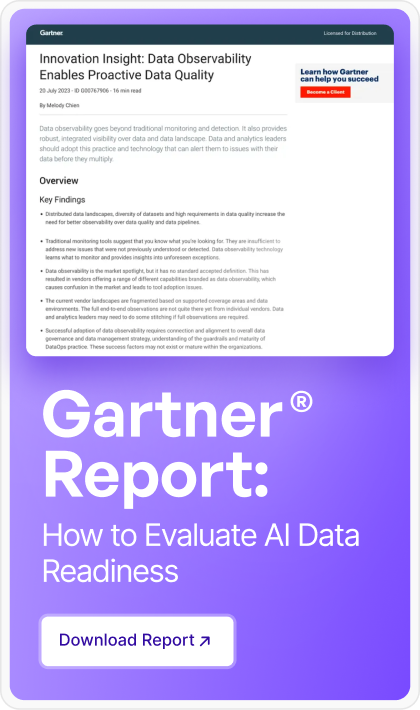




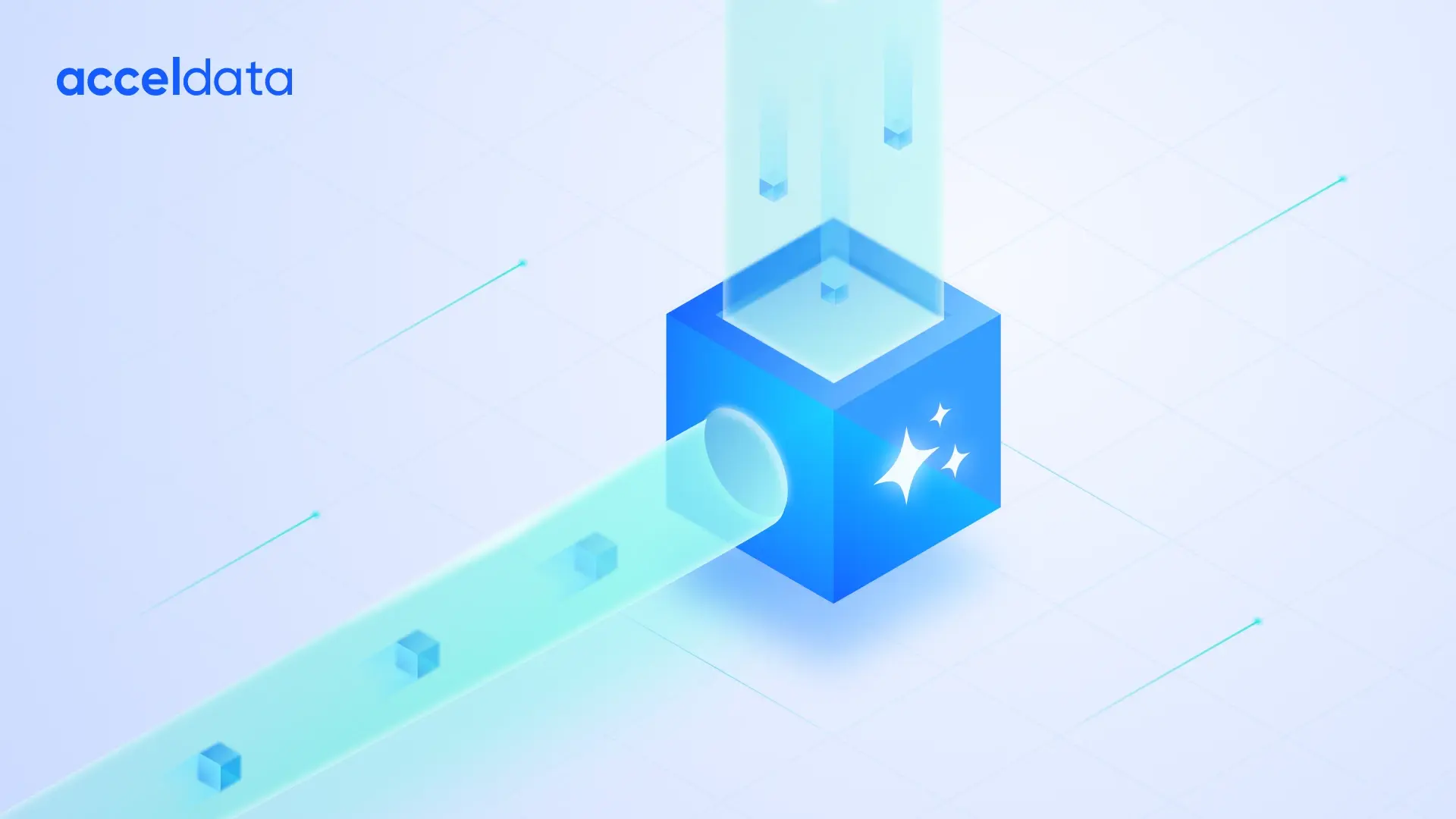

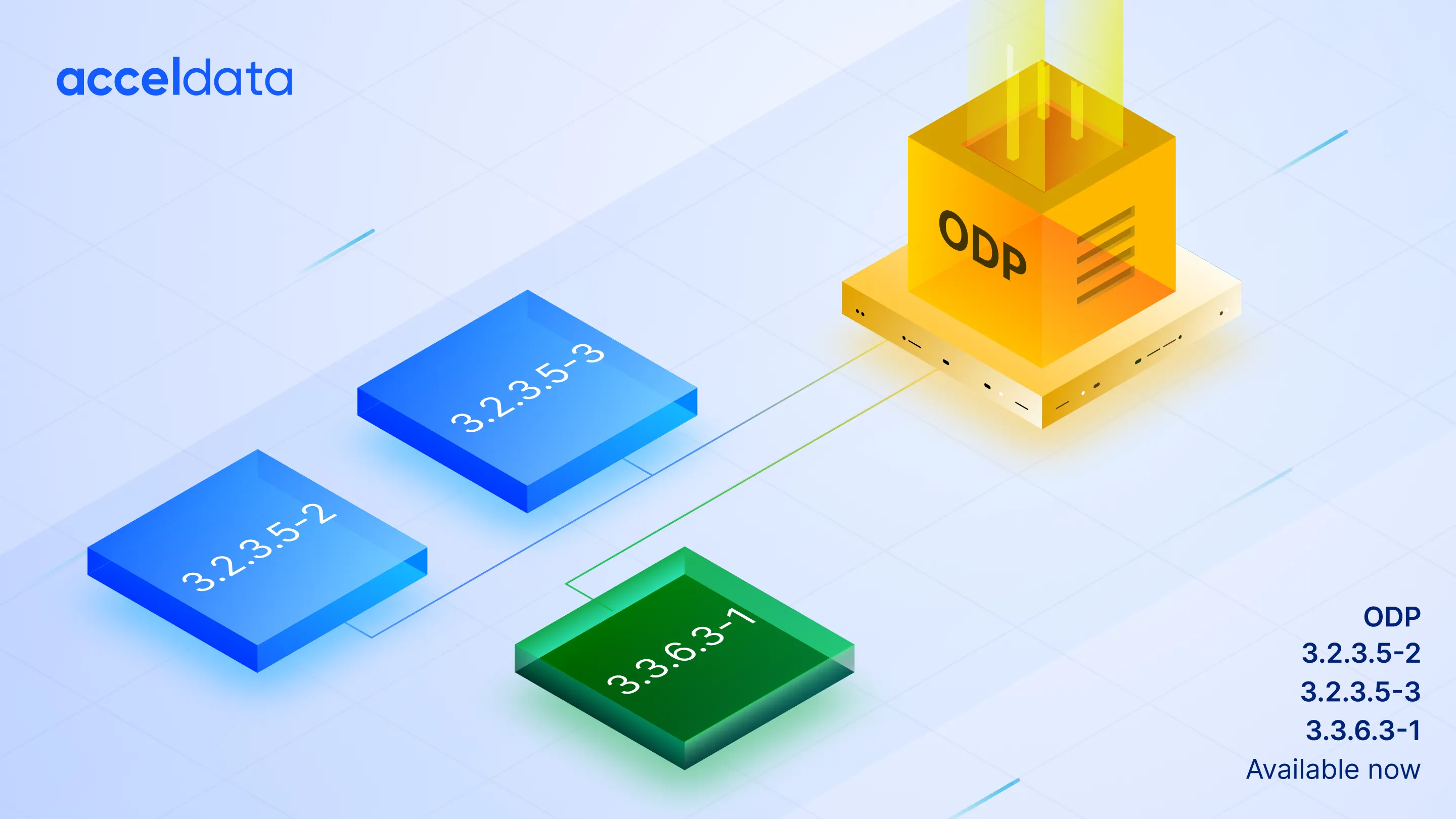
.png)
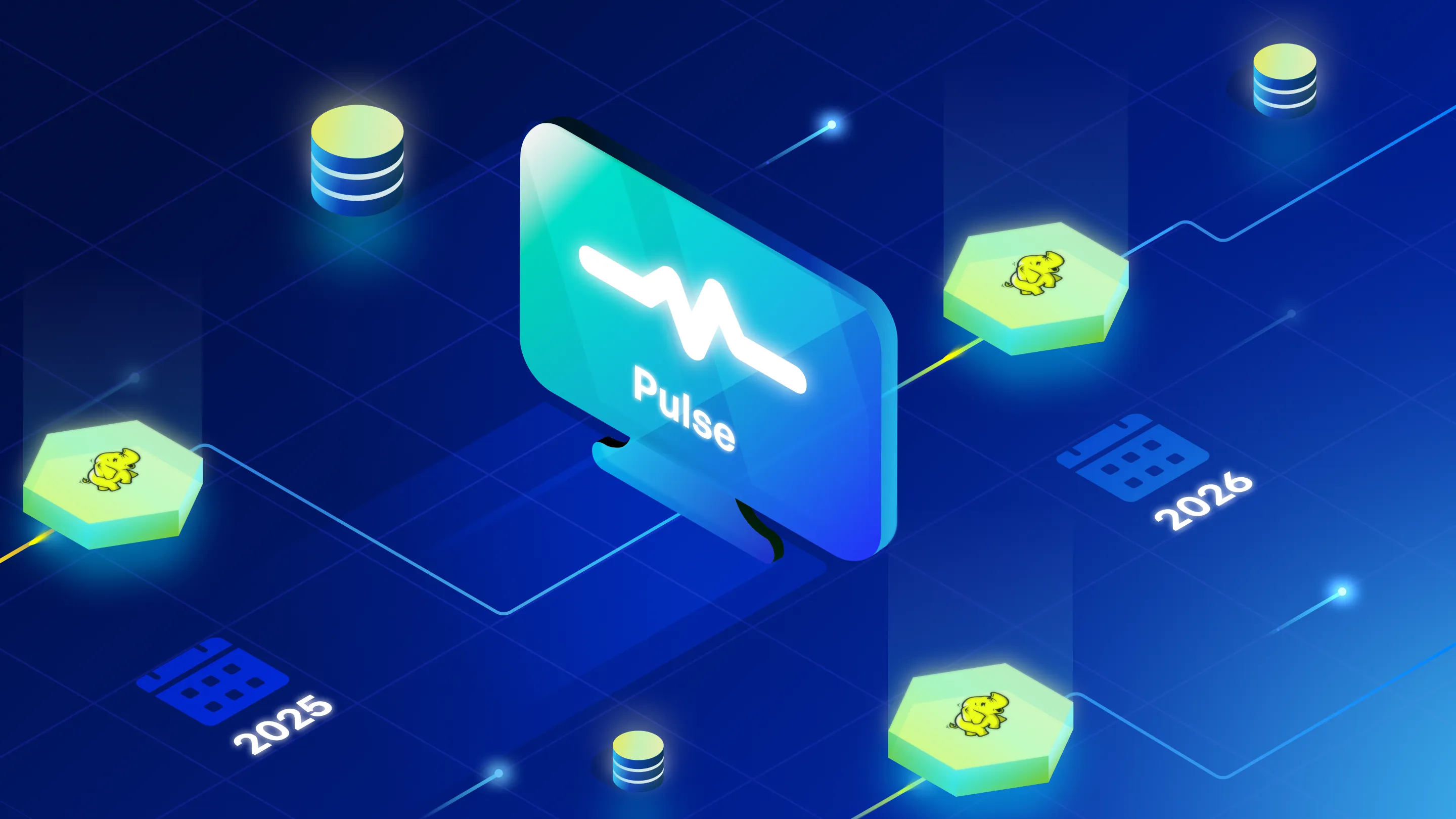

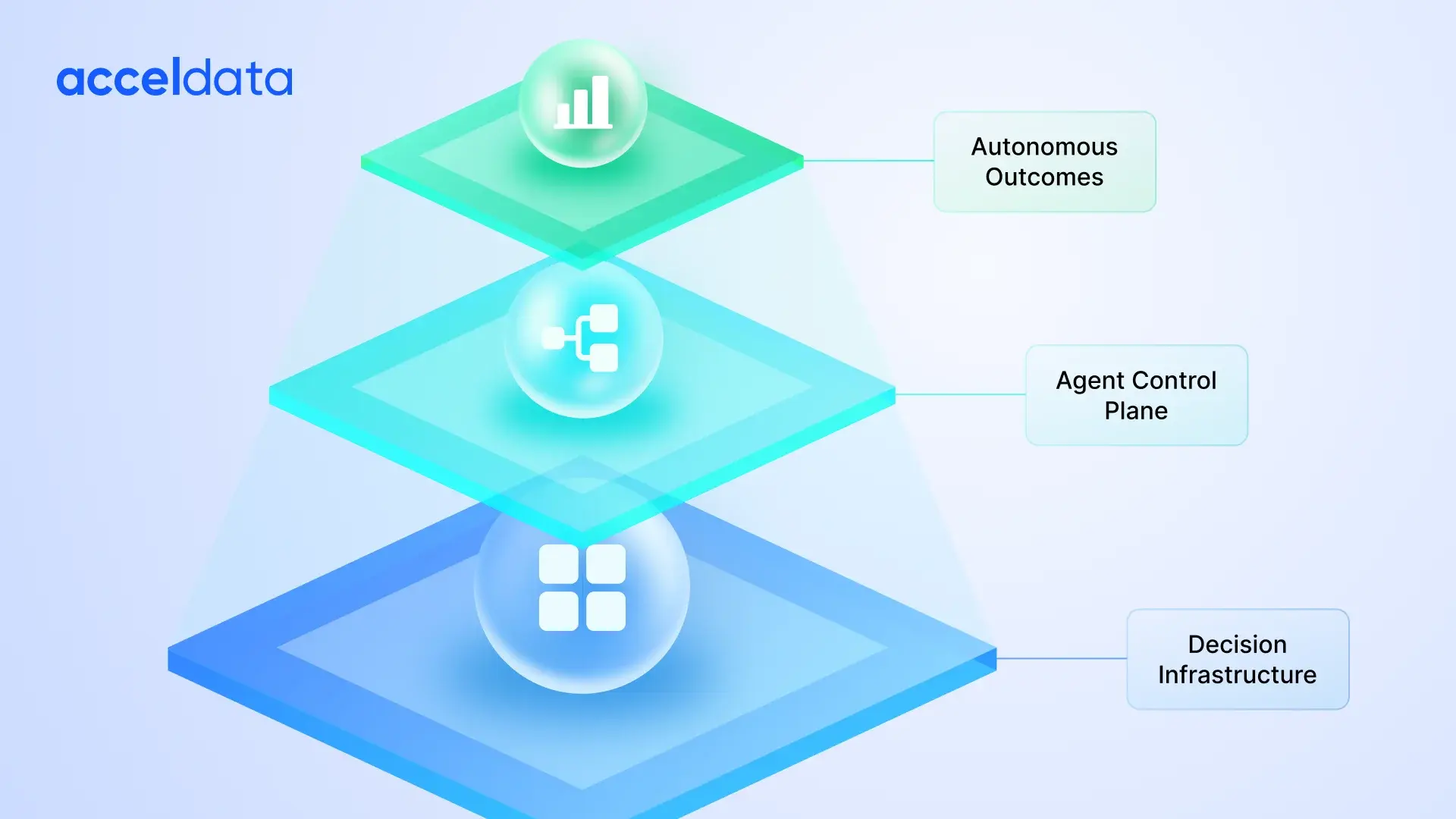





.webp)
.webp)


